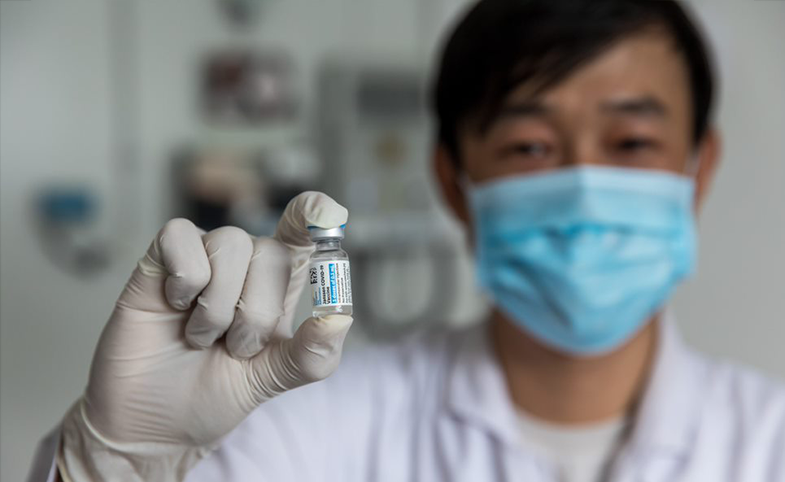In the age of permacrisis and an ever-growing multiplication of risks that can gain major global and geopolitical resonance, research-intense and evidence-informed resilience-building measures are in perpetual demand. This...
KEEP READINGThe CPD Blog is intended to stimulate dialog among scholars and practitioners from around the world in the public diplomacy sphere. The opinions represented here are the authors' own and do not necessarily reflect CPD's views. For blogger guidelines, click here.

Science Diplomacy in International Relations: A Portugal Case Study
Note from the CPD Blog Manager: An earlier version of this piece was published on Apr 2, 2024, in Marinho Media Analysis here.
While the concept of Science Diplomacy (SD) emerged in the early 21st century, it had already been previously carried out. Even though there is no single definition garnering the unanimous acceptance of experts, SD can be understood according to three aspects:
-science in diplomacy: scientific advice in relation to foreign policy
-diplomacy for science: diplomatic activities aimed at facilitating international scientific collaboration
-science for diplomacy: the use of science cooperation to forge international relations between countries.
SD is characterized by its complexity, owing, among various aspects, to its broad coverage and to its constant evolution.
SD in the context of international relations
While diplomatic academies scattered worldwide may include SD as part of their training, they are likely not addressing the topic the same way, as there may not be standards or frameworks for the study and practice of science diplomacy.
While our interviewees note that collaborative actions intended to promote SD in the international sphere are growing rapidly, they stressed that a few organizations, such as the United Nations Institute for Training and Research (UNITAR) and international development banks, are trying to get countries to engage in greater cooperation, in order to jointly be able to develop their SD capabilities. Multilateral or global organizations may benefit from having SD staff who often come from national departments and agencies. Lawrence Susskind, Director of the Massachusetts Institute of Technology (MIT) Science Impact Collaborative, argues it would be a serious mistake for said staff to be set up solely by global North experts.
SD, at embassies, can be formally conducted by attachés and counselors, for example. SD can also include representatives from research organizations who have been sent abroad. According to Pedro Figueroa, President of DiploCientifica, professionals in the sphere of foreign affairs, striving to leave their comfort zone, should be interested in science and technology. However, according to Figueroa, the reverse is also valid; that is, science-related professionals should also show interest in foreign affairs.
There are several examples of non-institutional SD practitioners: inter alia, scientists, directors and managers of research centers. Lawrence Susskind maintains that said scientists need to be suited to participate in international or global negotiations which basically comprise a political nature. This is why, according to Susskind, currently presidents or prime-ministers have senior advisers, as part of an interdisciplinary staff, especially prepared to take part in resolving conflicts and in science-intensive policy negotiations.
Science and technology produced in a country can contribute significantly toward heightening international reputation.
The Case of Portuguese Science Diplomacy
At a government level, interministerial cooperation is vital to SD's success. This is seen in countries such as France, where the Ministry for Europe and Foreign Affairs cooperates with the Ministry of Higher Education and Research. In another Member State of the European Union, Portugal, João Mourato Pinto conducted work for the Ministry of Foreign Affairs and for the Ministry of Science, Technology and Higher Education, under the topic of SD. This somehow also serves to exemplify the need to coordinate a variety of sectors of society, including in terms of the various Government ministries, so that SD yields positive fruits.
Pinto considers that Portuguese SD is defined in Council of Ministers Resolution No. 78/2016, November 30. This document holds that SD consists of using resources and initiatives from the field of science and technology, coherently and consistently, as part of Portugal's European and foreign policy, in order to pursue this policy's aims and, specifically, promote the nation's image and interests. Said Resolution adds that Portuguese SD should also foster opportunities for not only knowledge, communication and mutual collaboration, between Portugal and other countries, but also contacts between their peoples as well as public diplomacy.
Portuguese embassies and consulates are assigned initiatives for promoting the nation's resources and opportunities, in the sphere of science and higher education, while highlighting the use of their sites. The Ministry of Science, Technology and Higher Education, through the Science and Technology Foundation and in conjunction with the Ministry of Foreign Affairs, can, at Portuguese embassies, when such is appropriate, set up postdoctoral researchers serving as scientific advisers. Like all public diplomacy efforts, Portugal’s foreign and regional policies, the Portuguese language and culture set the priorities of Portugal's SD. Particularly targeted in this context are the Portuguese-Speaking African Countries (PSAC) and East Timor.
In general, the signing, with media coverage, of an international cooperation agreement in the areas of science and technology constitutes an opportunity to convey a message to the other country's people. SD can be envisaged as a soft power and public diplomacy instrument, at times with long-term effects, such that the countries become internationally attractive and influential. SD can to be regarded as an important tool of any country, regardless of their size or wealth. Science and technology produced in a country can contribute significantly toward heightening international reputation.
Visit CPD's Online Library
Explore CPD's vast online database featuring the latest books, articles, speeches and information on international organizations dedicated to public diplomacy.
POPULAR ARTICLES
-
January 29
-
January 20
-
January 28
-
January 2
-
January 8
Join the Conversation
Interested in contributing to the CPD Blog? We welcome your posts. Read our guidelines and find out how you can submit blogs and photo essays >.















